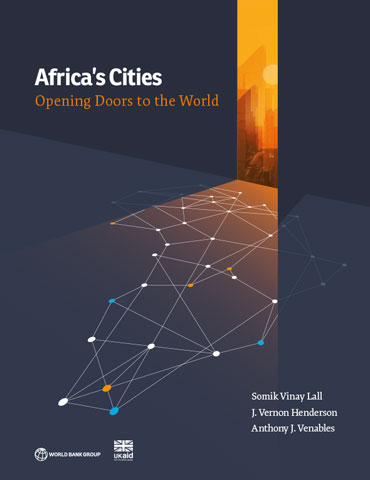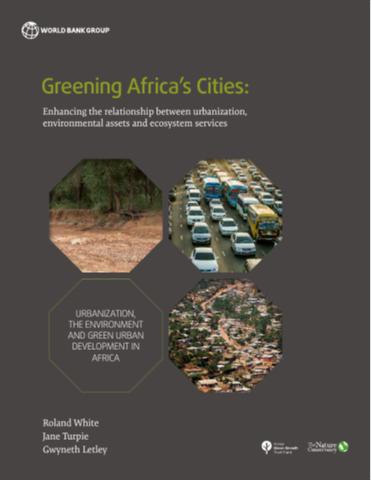-
Urban Africa: Opening Doors, Greening Cities
June 22, 2017 By Namita RaoCities in sub-Saharan Africa are growing rapidly. But will this
 lead to economic growth? According to a recent World Bank report, Africa’s Cities: Opening Doors to the World, the low level of regional and international trade is one of the main reasons why African cities are relatively poor. The report suggests that trade in these cities has remained local because most countries in sub-Saharan Africa depend on natural resource exports, leaving urban economies without tradeable goods and turning them into “consumption cities.” Spatial disorganization is also a key factor; due to inadequate public transport and infrastructure, these cities are some of the costliest places in the world to live and do business. The report urges African policymakers and governments to act swiftly to reform land markets and regulations. Early and coordinated infrastructure investments that improve urban transport and allow interdependence among sites, structures, and basic services could help build more connected, productive, and prosperous African cities.
lead to economic growth? According to a recent World Bank report, Africa’s Cities: Opening Doors to the World, the low level of regional and international trade is one of the main reasons why African cities are relatively poor. The report suggests that trade in these cities has remained local because most countries in sub-Saharan Africa depend on natural resource exports, leaving urban economies without tradeable goods and turning them into “consumption cities.” Spatial disorganization is also a key factor; due to inadequate public transport and infrastructure, these cities are some of the costliest places in the world to live and do business. The report urges African policymakers and governments to act swiftly to reform land markets and regulations. Early and coordinated infrastructure investments that improve urban transport and allow interdependence among sites, structures, and basic services could help build more connected, productive, and prosperous African cities.Another recent World Bank report,
 Greening Africa’s Cities: Enhancing the Relationship between Urbanization, Environmental Assets, and Ecosystem Services, says that urbanization in Africa “has been late, but it has been fast.” In many African countries, national institutions are weak; and industrialization, funding, and services are low. To build a sustainable urban space, the authors call for more environmentally friendly urban planning and an improved understanding of urbanization’s impact on the environment. Developing innovative financial planning schemes, such as payments for ecosystem services, would enable cities to recover the costs of more sustainable urban environment from those who benefit the most from using these resources. Another option is working with real estate developers to fund green public space; they can recover their costs from the sale of residences adjacent to that space. The report urges us to address these knowledge and technical gaps soon, because once ecosystems are degraded, the value of the services they provide may be lost forever.
Greening Africa’s Cities: Enhancing the Relationship between Urbanization, Environmental Assets, and Ecosystem Services, says that urbanization in Africa “has been late, but it has been fast.” In many African countries, national institutions are weak; and industrialization, funding, and services are low. To build a sustainable urban space, the authors call for more environmentally friendly urban planning and an improved understanding of urbanization’s impact on the environment. Developing innovative financial planning schemes, such as payments for ecosystem services, would enable cities to recover the costs of more sustainable urban environment from those who benefit the most from using these resources. Another option is working with real estate developers to fund green public space; they can recover their costs from the sale of residences adjacent to that space. The report urges us to address these knowledge and technical gaps soon, because once ecosystems are degraded, the value of the services they provide may be lost forever.Sources: World Bank.
Topics: Africa, development, economics, environment, population, Reading Radar, urbanization, World Bank
 A Publication of the Stimson Center.
A Publication of the Stimson Center.





